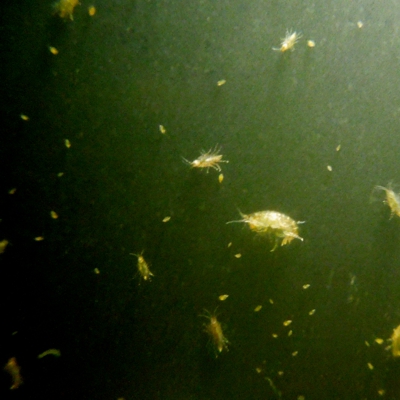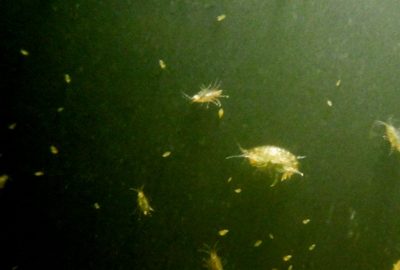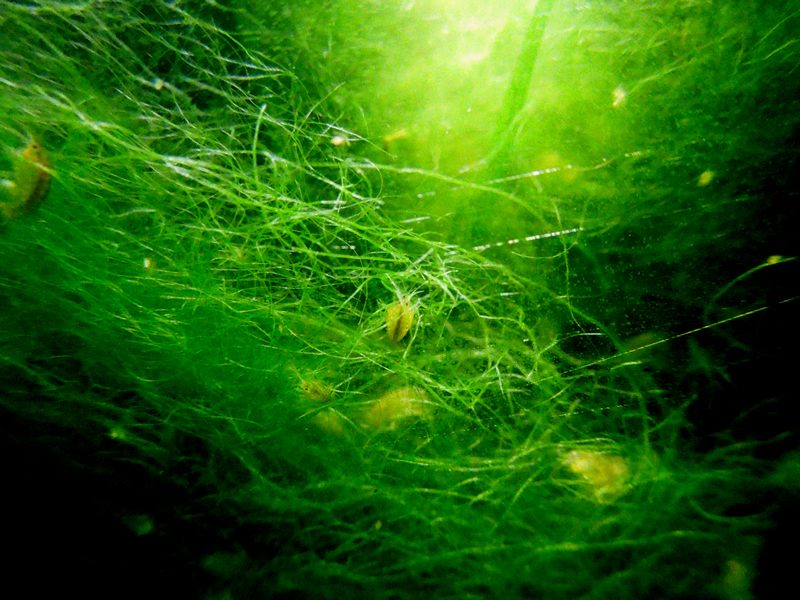Thank you for the inquiry, These range in size from 1/16″ to 5/16″ in length. Adults are about the same size as an adult brine shrimp. They make excellent food for your bettas. The bettas will eat the smaller ones first and the largest breeders will be the last to go, which enable the scuds to reproduce in their tank.
Here is some additional culturing information:
They do real well in a dirty/green water 10 gallon tank with playsand, naja grass, an airline that lets a bubble per second reach the surface and duckweed being fed an algae wafer every other day. They are much easier to culture compared to daphnia. Scuds are far less demanding than shrimp but similar, so I’m sure you will not have any problem keeping them. They seem to do best with sand substrate to borough with some coarse gravel to provide hiding places not completely covering the sand, floating plants such as duckweed and salvinia and Naja grass throughout the tank. They love algae wafers and eat any type flake food although I provide them with spirulina flake most often. One wafer to about 250 scuds should last 2-days. They feed on mulm, hair and thread algae (not especially fond of filamentous type though). Caution, they may out compete slower reproducing shrimp. They can coexist much like shrimp with smaller fish like guppies and endlers. These have been raised in Florida well water high gh water, fairly low conductivity of 290. The cleaner the tank the more supplemental food for best results. They are more active at night. They really don’t seem to mind dirty water as they thrive in some of my wet/dry filters as well. If you have any other specific questions please do not hesitate to ask.
LIVEFINS
The Place to Purchase Exotic Rare Guppies, Endlers, Shrimp, Snails, Live Plants...
PROUD MEMBER of the US TROPICAL ORNAMENTAL AQUACULTURE Industry
LIVEFINS BLOG ABOUT US PROUD MEMBER of the US TROPICAL ORNAMENTAL AQUACULTURE Industry

Mitchell Weintraub, Florida, U.S.A.
Copyright © 2012-2022 LIVEFINS – Powered by the Sun, the Earth and the Moon




